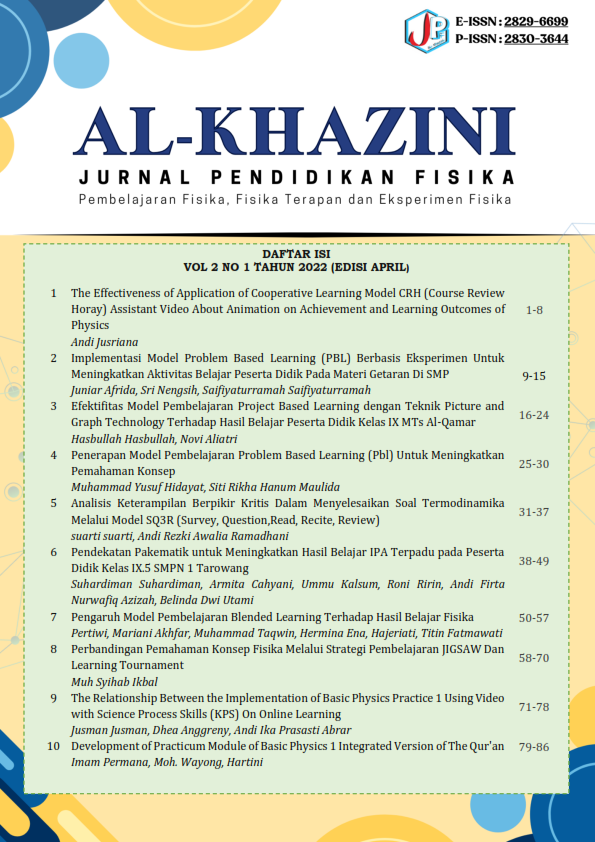Pengaruh Model Pembelajaran Blended Learning Terhadap Hasil Belajar Fisika
Abstract
This research is an experimental study using a posttest only control design. The research population was all the students of class XI MIA SMA Negeri 1 Satarmese with totaly 78 students from 3 classes. Simple random sampling was used to determine the control class was XI MIA 1 and the experimental class was XI MIA 2. The instruments used were tests, observations and documentation. The data obtained were analyzed by descriptive statistics and independent sample t-test different tests to answer the research problem formulation in the form of: (1) how much students' physics learning outcomes without applying the blended learning model in class XI MIA SMA Negeri 1 Satarmese. (2) how much the physics learning outcomes of students who apply the blended learning model in class XI MIA SMA Negeri 1 Satarmese. (3) is there a significant effect of the blended learning model on the physics learning outcomes of students in class XI MIA SMA Negeri 1 Satarmese. The research was conducted on Dynamic Fluids so that the results showed that Blended learning model was categorized as adequate. This can be seen from the average student learning outcomes in the experimental class greater than the average student learning outcome in the control class. And the results of hypothesis testing using the independent sample t-test with value t-count greater than t-table
Downloads
The Authors submitting a manuscript do so on the understanding that if accepted Al-Khazini:Jurnal Pendidikan Fisika for publication, copyright publishing of the article shall be assigned/transferred to Physics Education Department, UIN Alauddin Makassar as Publisher of the journal. Upon acceptance of an article, authors will be asked to complete a 'Copyright Transfer Agreement'. An e-mail will be sent to the corresponding author confirming receipt of the manuscript together with a 'Copyright Transfer Agreement' form by the online version of this agreement.
Al-Khazini:Jurnal Pendidikan Fisika and Physics Education Department, UIN Alauddin Makassar, , and Physics Society of Indonesia as the Editors and the Advisory International Editorial Board make every effort to ensure that no wrong or misleading data, opinions or statements be published in the journal. In any way, the contents of the articles and advertisements published in the Al-Khazini:Jurnal Pendidikan Fisika are the sole and exclusive responsibility of their respective authors and advertisers.
The copyright form should be signed electronically and send to the Editorial Office in the form of the original e-mail: [email protected]

